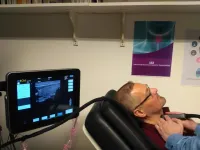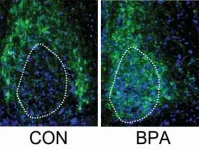(Press-News.org) Researchers from Trinity College Dublin have developed a novel set of tools for designing vitamin D clinical trials that capture large seasonal and population-wide differences in vitamin D status, typically seen in individuals. Their study published in the journal Scientific Reports (today, Monday 31st May 2021) provides a framework for clinical trials to establish whether vitamin D supplementation is effective against a given disease.
The study also reveals that many trials which failed to find any association between vitamin D and disease prevention may have been underpowered or conducted without enough subjects to detect a benefit of vitamin D.
You can read the full journal paper here: https://go.nature.com/3uERjgO
The problem:
Vitamin D deficiency has been linked with approximately 200 diseases, including most recently Covid-19. The link between vitamin D and disease can be causal - in such cases, vitamin D treatment is an effective way of preventing or treating the disease, for example rickets. However, due to an interplay with other factors vitamin D may only appear to affect health. In these cases, supplementation is not of benefit.
Results from many observational and experimental studies have strongly suggested that vitamin D supplementation is beneficial for health. However, randomised control trials (RCTs) have, in many cases, failed to show benefit. RCTs can help us distinguish between direct (causal) and indirect links, and therefore are the gold standard approach to identifying conditions where treatment is truly beneficial. The substantial disagreement in conclusions drawn from observational studies and RCTs on benefits of vitamin D has fuelled a heated debate in public health and limited the range of disease for which vitamin D is recommended as a treatment, or preventative aid.
Some concerns about RCT design that are specific to vitamin D are coming to the fore of this discussion. In particular, results from trials that found no benefit have been called into question, because the ability to spot effects of vitamin D supplementation might have been weakened by large differences in vitamin D status between participants. For example, it is not reasonable to expect improved health in individuals who, at the outset, have good vitamin D status: even if disease could 100% be prevented with vitamin D, a trial would find no benefit of supplementation if all participants were vitamin D sufficient, because there is no "room for improvement".
Study synopsis
The researchers approached the problem from the individual perspective, simulating vitamin D status over a year, with peaks in the summer and troughs in the winter. The modelled fluctuations were unique for each person, to allow for the differences that exist between people.
This study for the first time systematically examined key issues which can interfere with vitamin D trials, such as the differences between people's baseline vitamin D status and natural seasonal fluctuation due to changing intensity of solar radiation.
The study demonstrated that individual differences in vitamin D status among trial participants, coupled with seasonal fluctuations, can have detrimental impacts on a trial's ability to detect true causal effects.
Based on this work, it is possible to take into account specific characteristics of the study population when planning a trial, to ensure sufficiently large sample size that will enable investigators to see a benefit of vitamin D supplementation, if such a benefit exists.
The study particularly focused on determining the right sample size requirements for a successful vitamin D RCT. Given the population and seasonal variations, a minimum size is needed to give a trial enough statistical power to be able to detect a treatment effect when one exists.
The results suggest that the sample sizes used in some RCTs that failed to detect a treatment effect were underpowered. In these cases, we cannot know if vitamin D supplements didn't work (true negative), or if the sample size was too small to pick up an effect obscured by noise (false negative). The results suggest many of these questions may need to be re-examined, with sufficiently large samples.
In the case of vitamin D supplementation, statistical power can be improved by appropriate trial design; as this study shows, this should include looking at baseline vitamin D status, considering the time of year the trial takes place and most importantly, how many individuals are going to be recruited to the trial.
The implications of establishing whether those null-findings from RCTs are true or false negatives are major. If associations with vitamin D and some of those 200 diseases are causal, enormous public health impact could be achieved by advocating seasonal supplementation for vitamin D deficient individuals.
Dr Jason Wyse, Assistant Professor in Statistics at Trinity College and a senior author on the study, said:
"Vitamin D levels in our blood have an annual rhythm, keeping time with the seasons of the year. Our tools allow researchers to take account of these important characteristics when planning a trial, modelling vitamin D benefit at the individual micro-level and bringing these together to get a view of what would happen at the macro-level of a trial."
Dr Lina Zgaga, Associate Professor in Epidemiology at Trinity College and a senior author on the study, said:
"We simulated a wide range of scenarios and approximated how many participants we would need, given the range of starting points, to have sufficient statistical power to detect an effect. We found that once we take seasonal and population differences into account, we would need a larger number of participants than traditional approaches would suggest. The signal - a treatment benefit of Vitamin D - may have been lost to noise in many trials.
We now have new understanding about the factors that might have interfered with our ability to detect benefit in vitamin D trials. Going forward, we need appropriately designed and adequately powered vitamin D trials, and we hope this new tool will help researchers to ensure this. While we await these trials, I would encourage everyone to take vitamin D supplements."
INFORMATION:
You can read the full journal manuscript here: Power determination in vitamin D randomised control trials and characterising factors affecting it through a novel simulation-based tool | Scientific Reports (nature.com)
YouTube is a treasure trove of virtual reality fails: users tripping, colliding into walls and smacking inanimate and animate objects. By investigating these "VR Fails" on YouTube, researchers at the University of Copenhagen have sought to learn more about when and why things go sideways for users and how to improve VR design and experiences so as to avoid accidents.
Millions of YouTube viewers have enjoyed hearty laughs watching others getting hurt using virtual reality - people wearing VR headsets, falling, screaming, crashing into walls and TV sets, or knocking spectators to the floor. Some of us have even been that failing someone. Now, videos of virtual reality mishaps, called "VR Fails", ...
Redox-flow batteries store electrical energy in chemical compounds that are dissolved in an electrolyte. They are a particularly promising alternative to lithium-ion batteries as stationary energy storage. A team headed by Prof. Dr. Ingo Krossing from the Institute of Inorganic and Analytical Chemistry at the University of Freiburg has succeeded in developing a non-aqueous All-Manganese Flow battery (All-MFB) that uses sustainable manganese as its active material and has a long cycle life. The researchers present the results of their work in the latest edition of Advanced Energy Materials.
Active materials are ...
Energy communities will play a key role in building the more decentralised, less carbon intensive, and fairer energy systems of the future. Such communities enable local prosumers (consumers with own generation and storage) to generate, store and trade energy with each other -- using locally owned assets, such as wind turbines, rooftop solar panels and batteries. In turn, this enables the community to use more locally generated renewable generation, and shifts the market power from large utility companies to individual prosumers.
Energy community projects often involve jointly-owned assets such as community-owned wind turbines or shared battery storage. Yet, this raises the question of how these assets should be controlled - often in real time, and how the energy outputs jointly-owned ...
Thyroid nodules are a common pathology having a prevalence of 19-76% when screened with ultrasound, with higher frequencies in women. Current medical methods used to assess the malignancy of a nodule consist in performing an ultrasound, followed by a Doppler ultrasound, and then a biopsy. However, unfortunately, these methods present both low specificity and low sensitivity. This insufficient effectiveness in accurately being able to diagnose thyroid tumors leads to many unclear or unnoticed cases as well as many others that undergo unnecessary surgeries (false positives) and increase the cost ...
When the Augustinian monk Gregor Mendel crossed white-flowering with purple-flowering pea plants in the mid-19th century, he made an interesting discovery: The offspring were all purple. He therefore called this trait dominant, while the white blossom color was recessive. The reason for this phenomenon: In peas, each gene occurs twice. One version comes from the maternal plant and the other from the paternal plant. If a pea has inherited the gene for purple flower color from one parent, but the gene for white flower color from the other, purple wins. Only when two genes for white flowers come together in the offspring plant is it white.
Humans also have genes that are inherited either dominantly or recessively. However, the case is not so clear for the mutations investigated ...
Using a Fitbit and a spy mic, scientists have discovered new insight into the behaviour of the elusive Canada lynx. A new study by researchers from McGill University, University of Alberta, and Trent University provides a first look at how miniaturized technology can open the door to remote wildlife monitoring.
"Working on one of the boreal forest's top predators, the Canada lynx, we found that two different technologies, accelerometers and audio recording devices, can be used to remotely monitor the hunting behaviour of predators, even documenting the killing of small prey," says lead author Emily Studd, a Postdoctoral Fellow under the supervision of Murray Humphries at McGill University and Stan Boutin at University ...
The University of Ottawa's Positive Energy program released new survey results showing that a large segment of the Canadian public does not trust the courts to settle disputes over energy projects or climate policy. The survey was conducted by Positive Energy's official pollster, Nanos Research.
Canadians were asked: On a scale of 0 to 10, where 0 means do not trust at all and 10 means trust completely, how much do you trust the courts to settle disputes over government decisions on energy projects? They were asked the same question for climate policy. The results are very similar. Only one in three Canadians trust the courts to settle disputes over energy projects or climate policy (answering between 7 and 10: 31% for energy, 30% for ...
Machine learning, when used in climate science builds an actual understanding of the climate system, according to a study published in the journal Chaos by Manuel Santos Gutiérrez and Valerio Lucarini, University of Reading, UK, Mickäel Chekroun, the Weizmann Institute, Israel and Michael Ghil, Ecole Normale Supérieure, Paris, France. This means we can trust machine learning and further its applications in climate science, say the authors. The study is part of the European Horizon 2020 TiPES project on tipping points in the Earth system. TiPES is administered from the University of Copenhagen, Denmark.
Man or ...
Humans are exposed to a bath of chemicals every day. They are in the beds where we sleep, the cars that we drive and the kitchens we use to feed our families. With thousands of chemicals floating around in our environment, exposure to any number is practically unavoidable. Through the work of researchers like Dr. Deborah Kurrasch, PhD, the implications of many of these chemicals are being thoroughly explored.
"Manufacturers follow standards set by regulatory bodies, it's not up to the manufacturers to prove the chemicals in consumer products are safe," says Kurrasch, a researcher in the University of Calgary's Hotchkiss Brain ...
Right-wing voices set out powerful but misleading arguments to justify inaction by the Trump administration during the COVID-19 pandemic, according to a new study of the rhetoric used by high-level government officials and influential commentators in the US during the first half of 2020.
In a study published in the DeGruyter journal Open Anthropological Research, Professor Martha Lincoln of San Francisco State University examined how public officials openly pushed for people to accept widespread illness and death from the virus by adopting a tone that suggested premature death was normal and the scale of death acceptable in the grander ...







